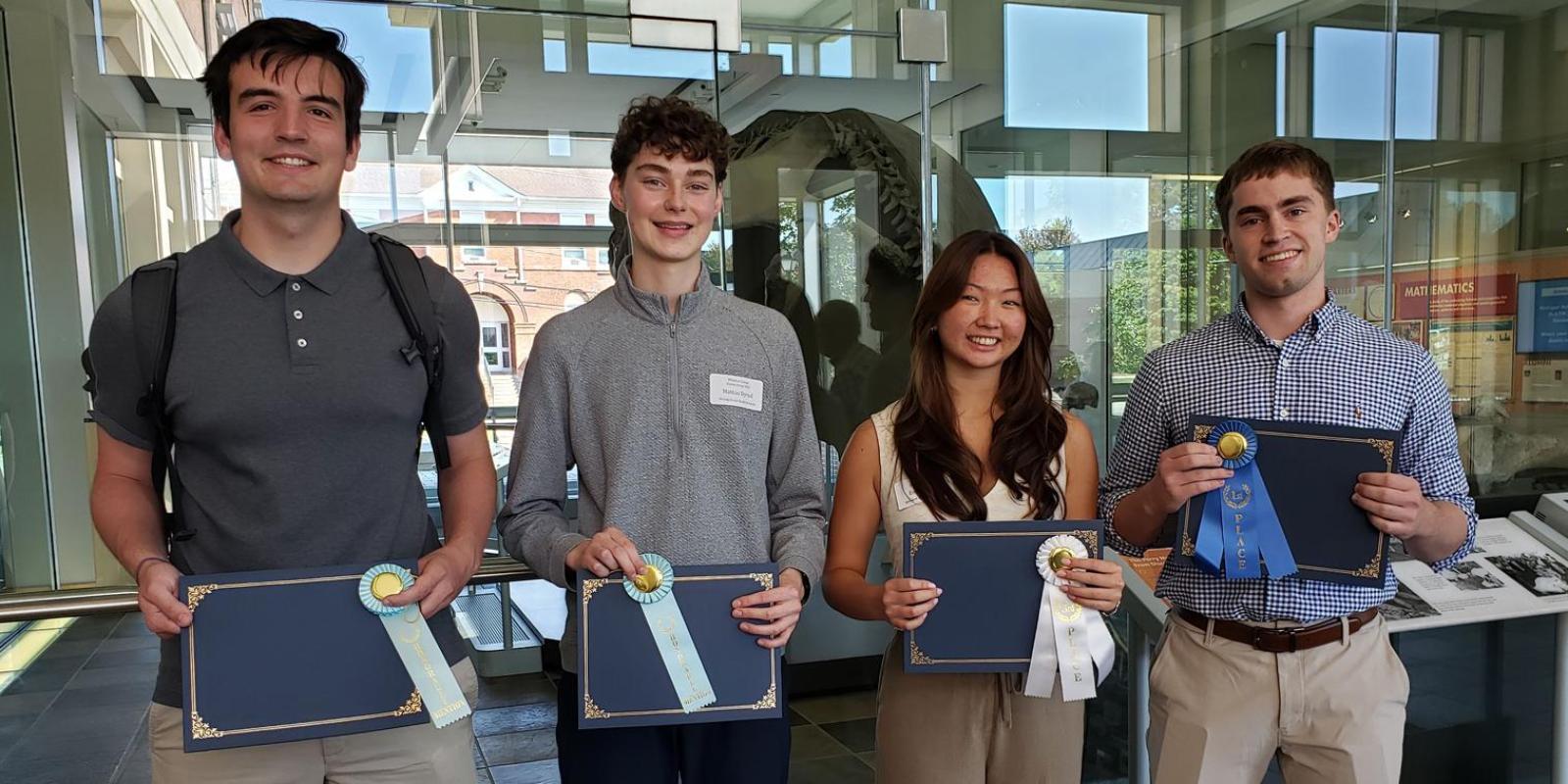
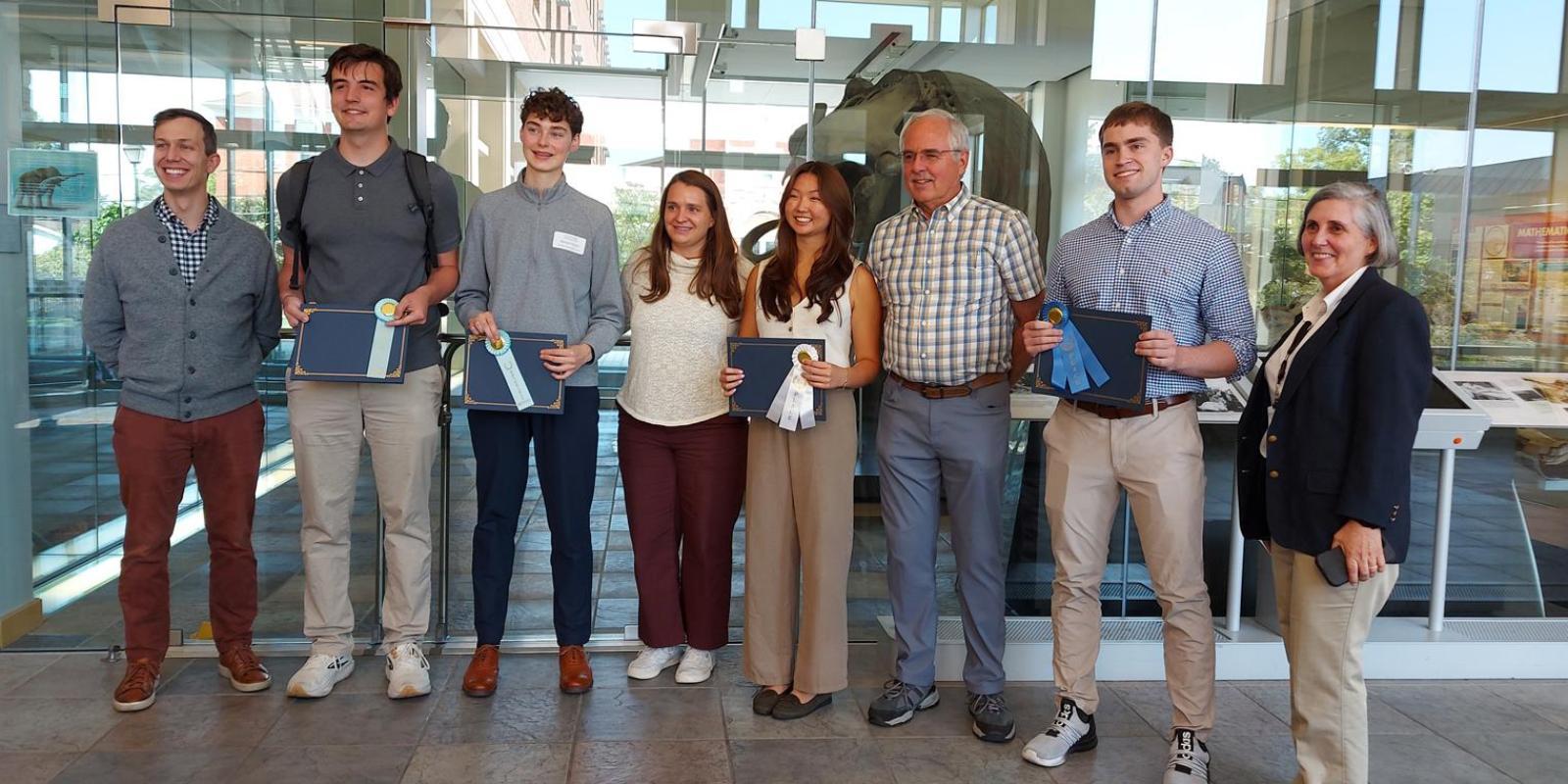
First Prize
Eli Hamer
Mentor: Dr. Hyunju Kim
Project Title: Another Look at Grantwise: A Database App for Grants and Related Financial Data
Objective
The goal was to reengineer a grant-tracking app called Grantwise originally made by Ms. Virginia Shaffer of the Office of Sponsored Programs. This meant restructuring the database and script library to be more streamlined for future maintenance, making the user interface more accessible for new users, and developing a user manual to ensure the platform is easy to navigate.
Reflections on the Summer Research Program
Thank you for giving me the opportunity to use the skills that I have learned through my time with the Wheaton Computer Science department to hopefully better the lives of Sponsored Program Officers in many colleges. I feel that I have grown both professionally in my work and spiritually through reading God's Shalom Project with my professor, Dr. Kim. Additionally, my work with Ms. Virginia Shaffer taught me the value of collaboration and constructive criticism.
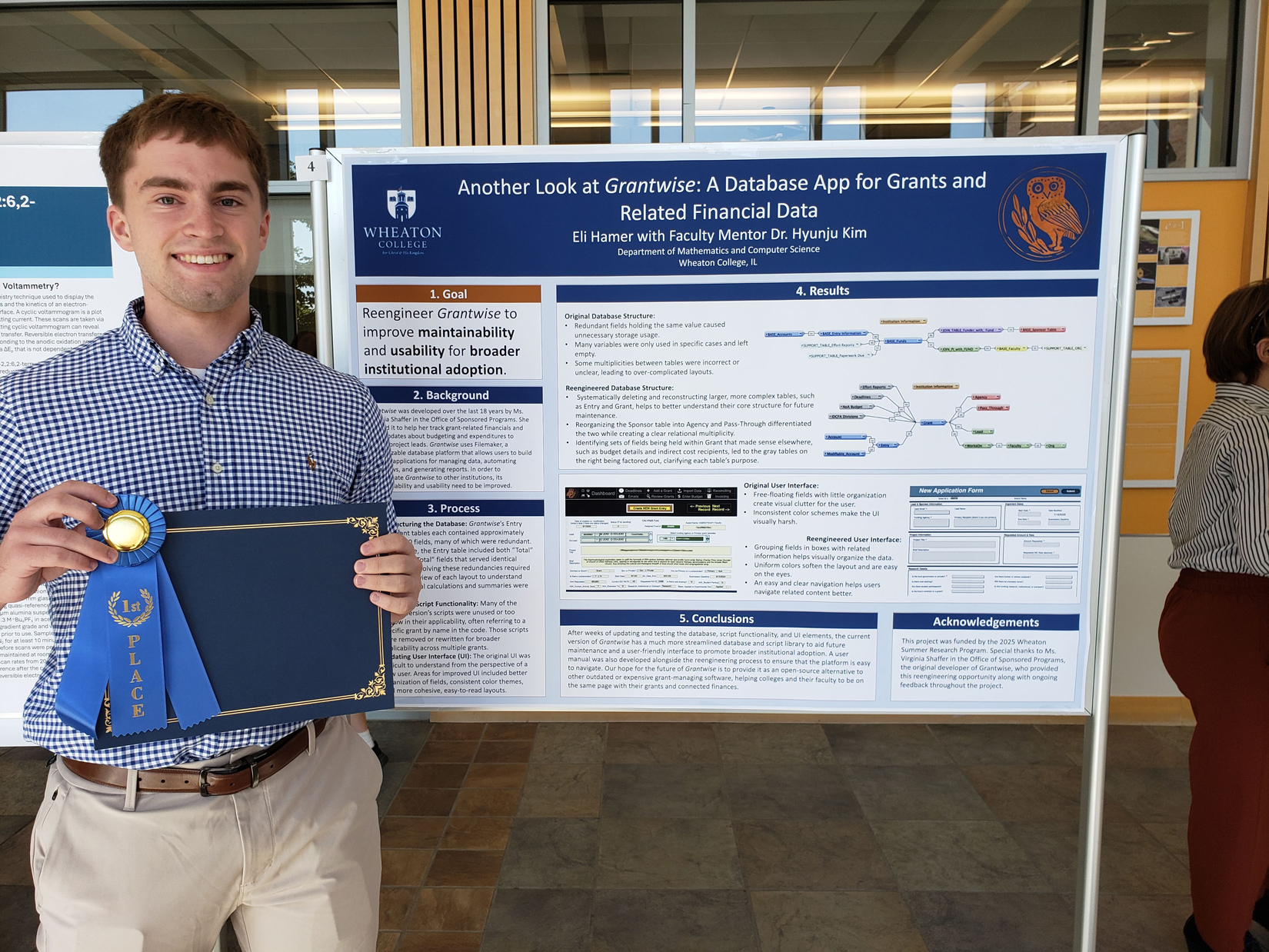
Second Prize
Marie Ashworth**
Mentor: Dr. Peter Jantsch
Project Title: Accelerating Convergence of Polynomial Approximation Methods Using Conformal Maps
Objective
In many areas of science, we represent real world processes through mathematical models, represented by functions. Performing calculations on these functions can be computationally taxing or impossible. There are ways to approximate functions such that the complexity of the original computation is diminished. These methods of approximation will have varying levels of accuracy tied to specific properties of the function, like the number of derivatives.
This research looks at improving classical polynomial interpolation using a specific variable transformation called a conformal map and composing it with the Lagrange interpolating polynomial. We considered this for 1-dimensional as well as multi-dimensional functions. We found that our new method significantly improved the convergence rate of many functions that had singularities in the complex plane.
Reflections on summer research at Wheaton
I am grateful for the chance to learn and conduct research in such an encouraging environment. This program has been such a valuable experience for me to get a glimpse into the world of research. I look forward to taking the things I have learned this summer into new contexts!
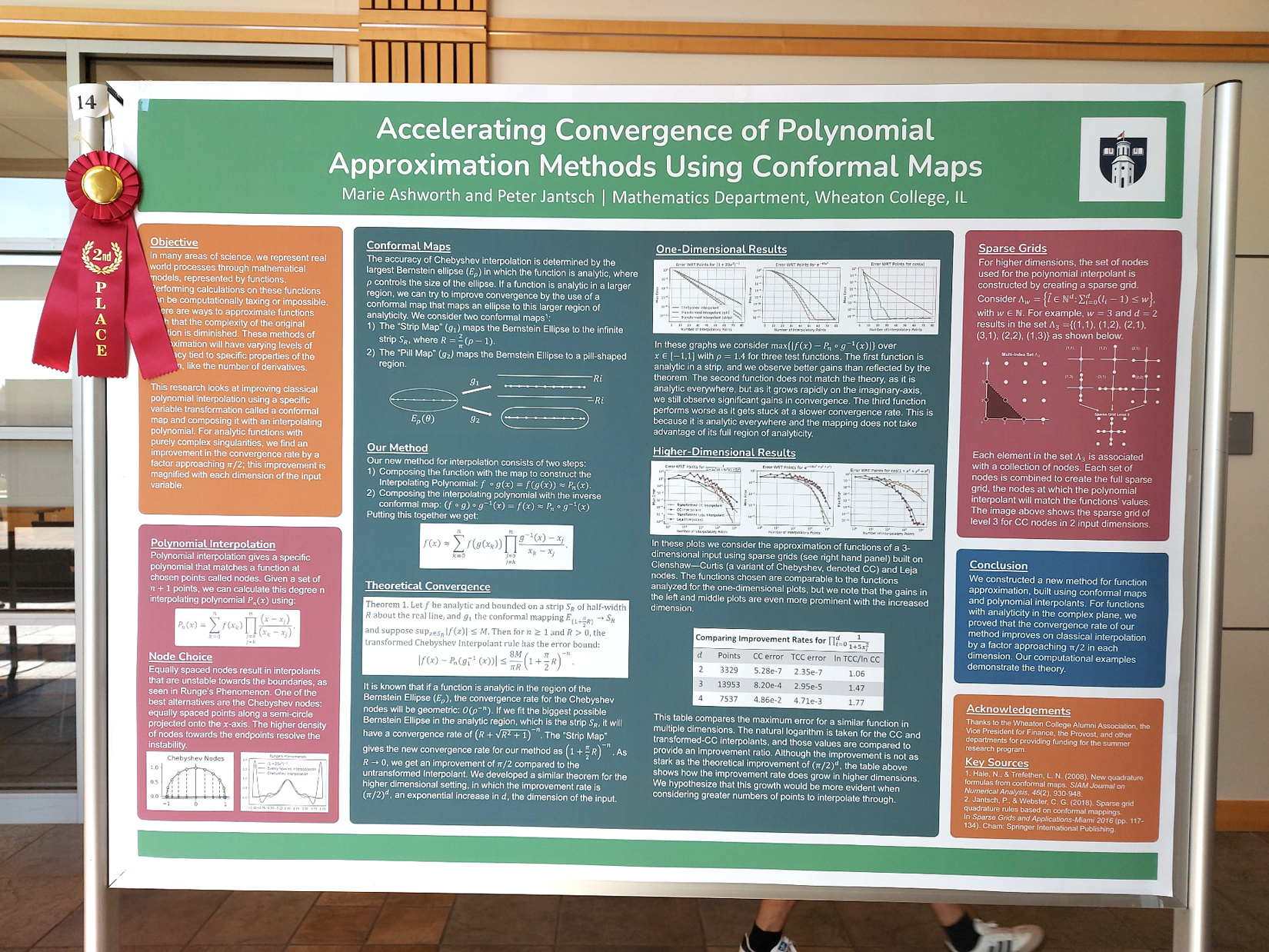
Third Prize
Emelyn Jong
Mentor: Dr. Meredith Sommars
Project Title: The Effects of Microplastics on Pancreatic α-cell Viability, Proliferation, and Gene Expression
Overview
The primary focus of my work this summer was to develop a transgenic tool using the FLP/FRT recombinase system to achieve cell type-specific expression with the strength and reliability of ubiquitous promoters, enabling improved visualization of DD neurons and other cells of interest in C. elegans. My time was mainly spent cloning several rounds of plasmids, utilizing molecular cloning techniques such as Gibson Assembly, Golden Gate Assembly, and site directed mutagenesis.
Reflections on the Summer Research Program
This opportunity has allowed students like myself to gain valuable hands-on experience in the enriching and challenging world of scientific research, while also inspiring us to contribute to the future of science. I feel truly fortunate to have had this chance to grow in my laboratory skills, expand my scientific knowledge, and build confidence in this field.
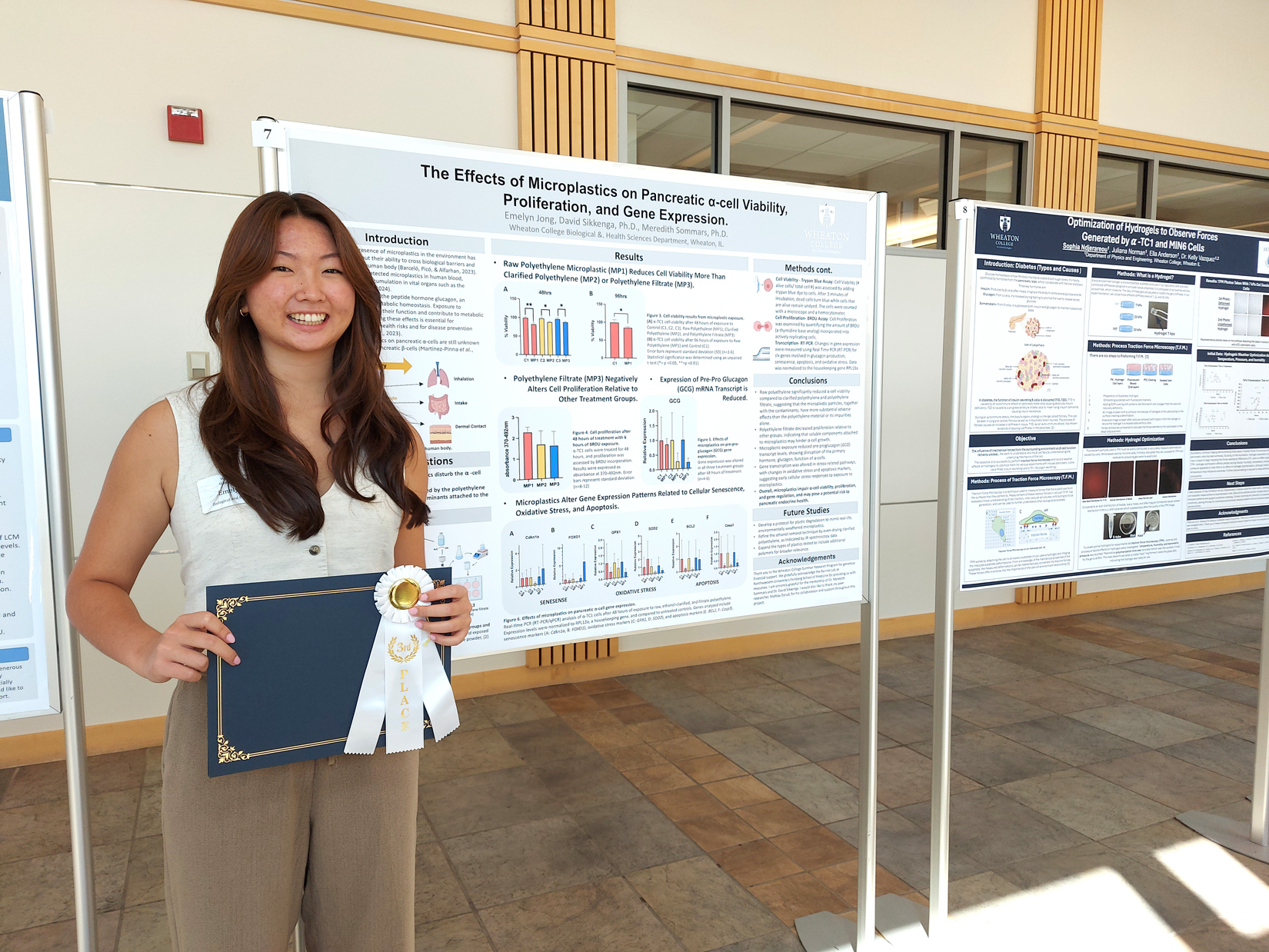
Honorable Mention
Mattias Dyrud
Mentor: Dr. Meredith Sommars
Project Title: Determining the Mechanism of Elevated Glucagon Following Hepatic Bcl6 Deletion
Research Question
By what mechanism does Bcl6 liver knockout in mice lead to increased glucagon levels
Background
Metabolic disorders including Type 2 diabetes (T2D), obesity, and metabolic dysfunction-associated steatotic liver disease (MASLD) continue to increase in prevalence and are a serious public health concern. The liver-α-cell (pancreas) axis, an emerging topic, is a communication system that plays an important role in metabolic health. New findings suggest glucagon, produced by the α-cells of the pancreas, is crucial for regulating amino acid levels by stimulating liver processes. Amino acids link the liver to α-cells. Interruption of this feedback loop can lead to negative health consequences. The transcription factor B cell lymphoma 6 (Bcl6) is highly expressed in the liver. Liver genetic deletion (LKO) of Bcl6 affects the liver-α-cell axis by increasing circulating glucagon.
Reflections on the Summer Research Program: I am extremely grateful for the opportunity to participate in biological research through the Wheaton Summer Research Program! I have learned so much throughout my experience.
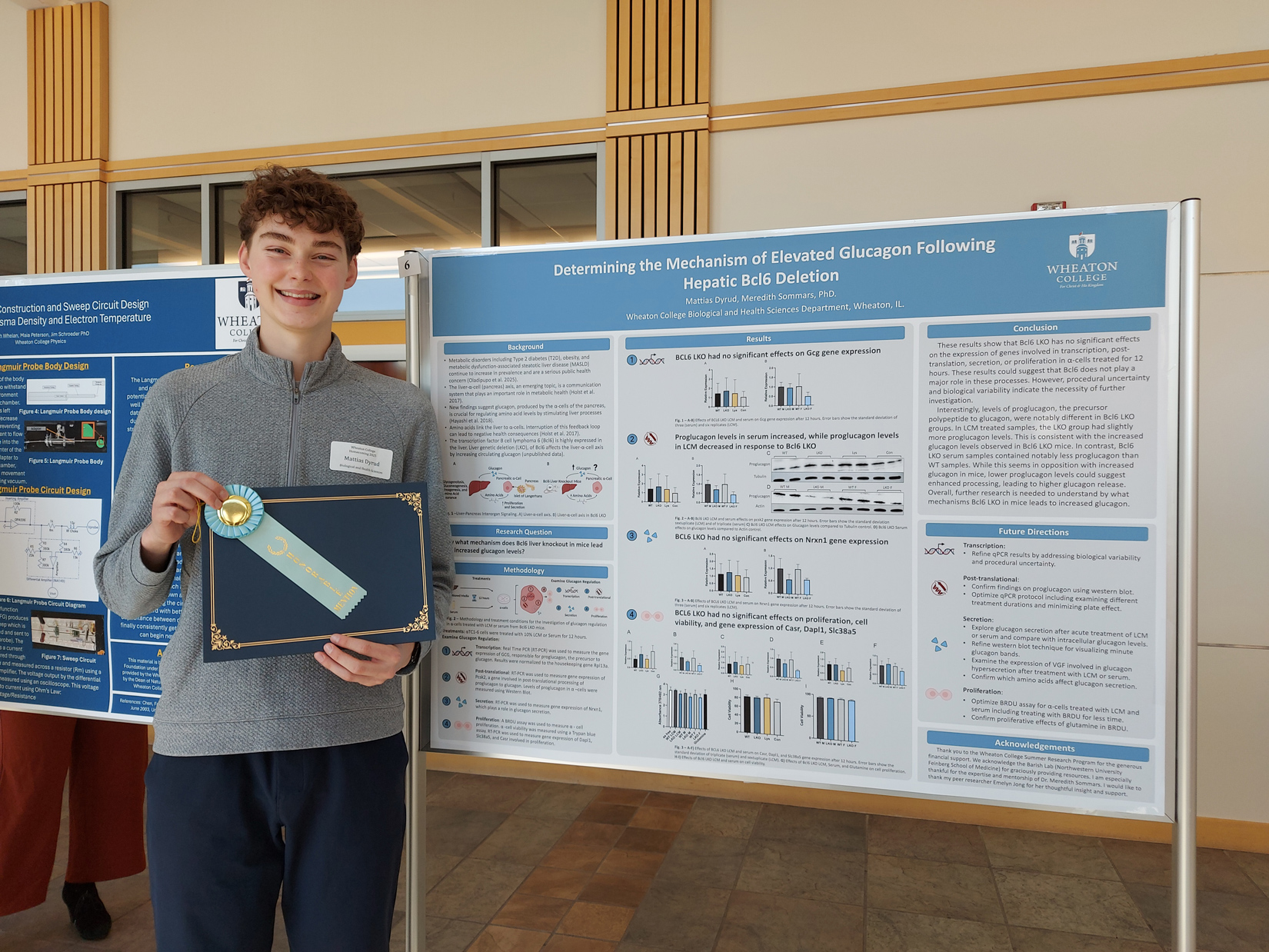
Honorable Mention
Josh Whelan
Mentor: Dr. Jim Schroeder
Project Title: Langmuir Probe Design and Sweep Circuit Construction for Analysis of Plasma Density and Electron Temperature
Background
The Wheaton Laboratory Plasma Device (WLPD) creates plasma by shooting radio frequency waves (RF) from an antenna into a vacuum chamber of very little argon gas. The RF creates plasma by causing electrons to break from the argon gas. A uniform magnetic field is applied to the plasma, keeping the plasma centered in the device. Some key parameters are not yet measured including floating potential, plasma density, and electron temperature, which are essential to know for further experimentation.
By inserting a Langmuir probe into the plasma chamber and applying a sweeping voltage to the tip of the probe, we can determine traits of the plasma based on the curve of current of electrons and ions collected by the probe vs the voltage applied.
Results
The Langmuir probe works and can find floating potential. The circuit works as well but does not give clear data when the plasma is on, due to RF interference from stray radio waves in the room. Despite this, we were still able to collect some initial data, but systematic uncertainties remain. With greater RF shielding, we would likely begin to see more promising curves.
Reflections on the Summer Research Program
This summer research at Wheaton was a great learning experience and gave me a lot of insight on what it means to do research.
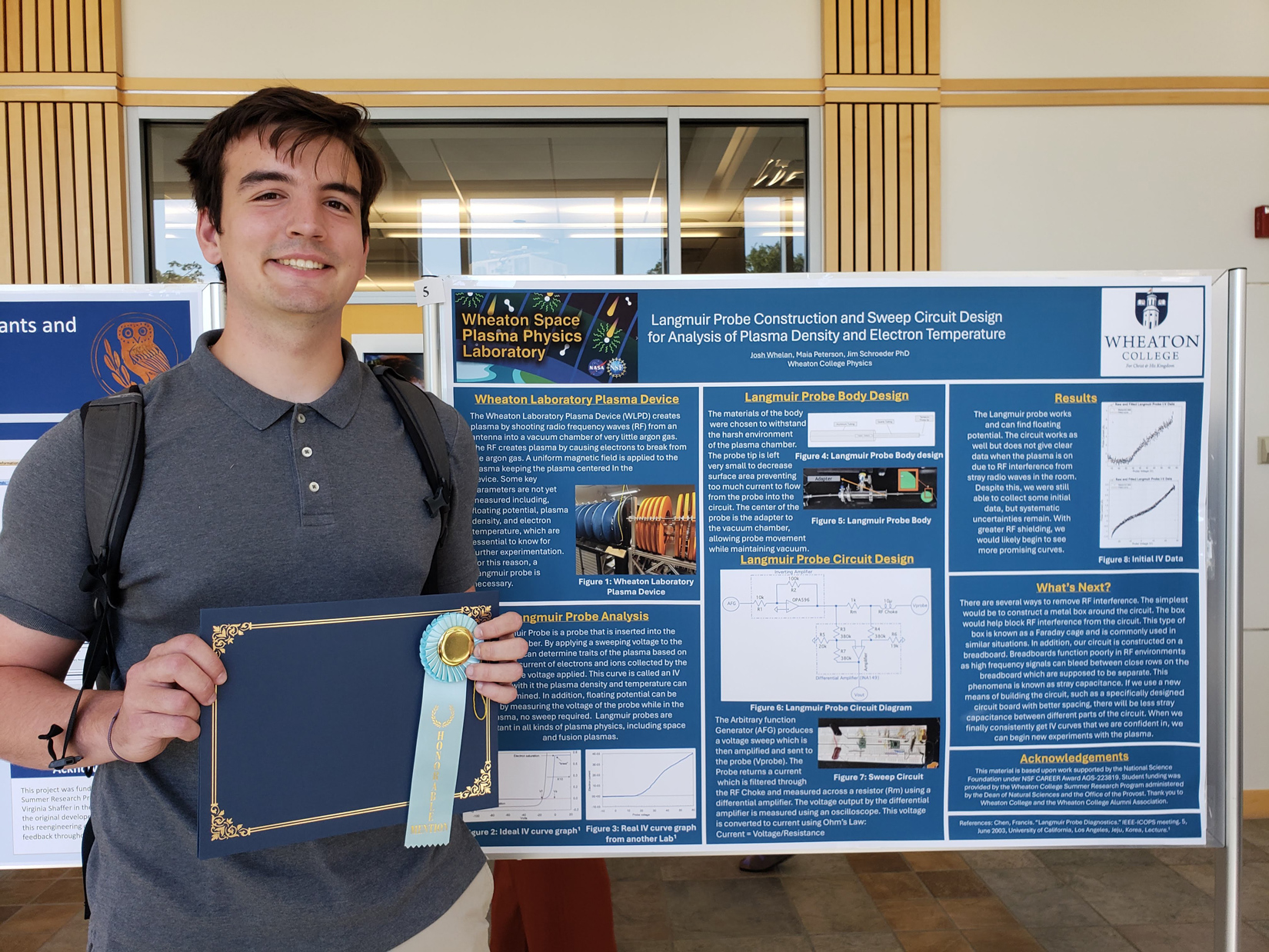
Honorable Mention
Antonio Bucolo**
Mentor: Dr. Andrew Luhmann
Project Title: Exploring How Calcium Limits Phosphate Availability in Alkaline Lake Environments: A Study with Implications for the Origin of Life
Objective
To investigate the interaction between aqueous calcium and phosphate in high-alkalinity systems and determine the calcium concentration at which phosphate begins to precipitate and its dissolved levels are suppressed in order to better refine origin-of-life studies.
Reflections on the Summer Research Program
The commitment to student research and hands-on learning continues to create meaningful opportunities for growth, discovery, and academic exploration. Thank you for providing me with a means of experiencing the field of research among fellow college students and all of the highlights that came with it this summer.
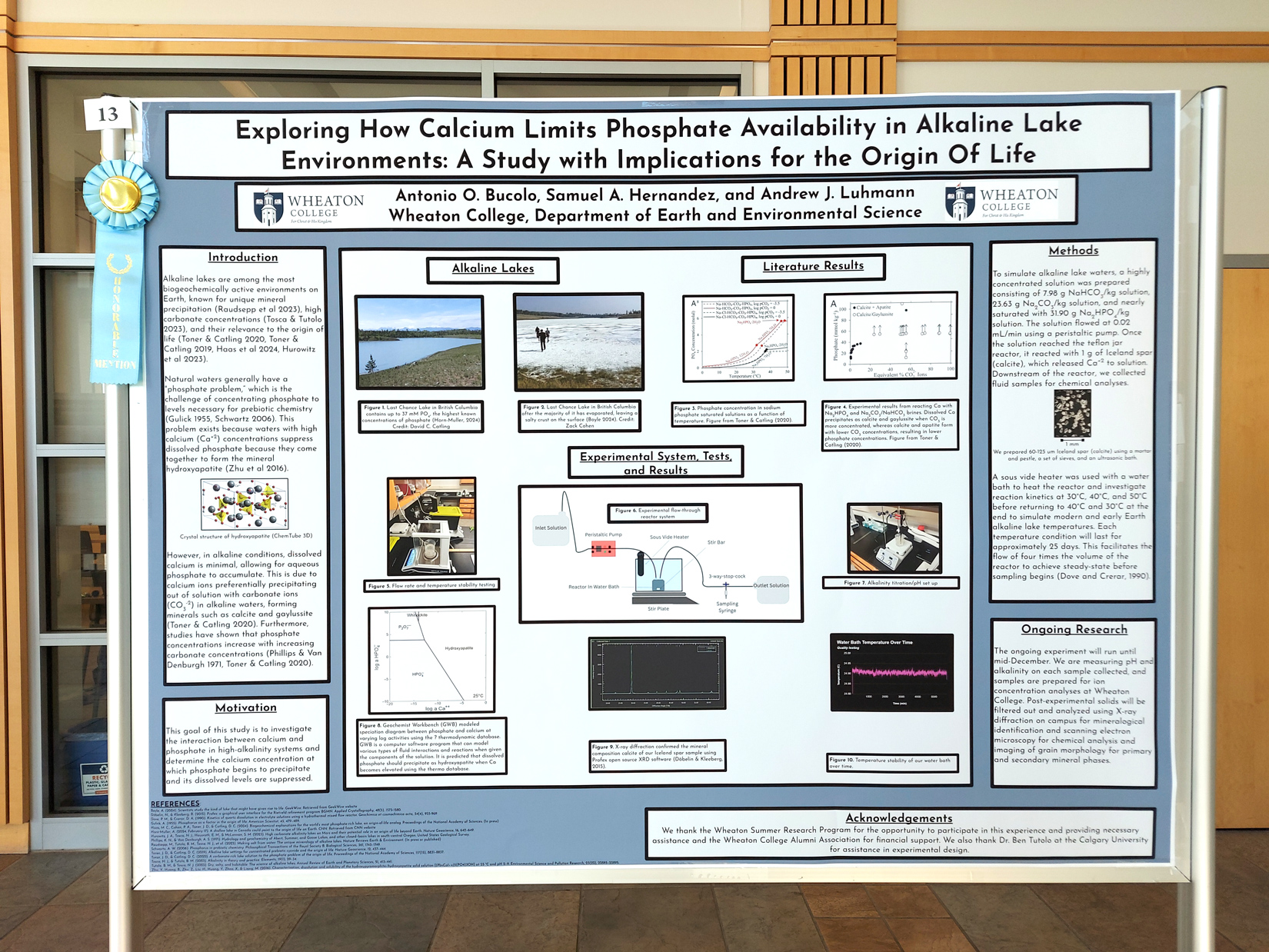
**Note – Marie Ashworth (Second Place) and Antonio Bucolo (Honorable Mention #3) were unable to attend the award event so we have provided pictures of their posters.